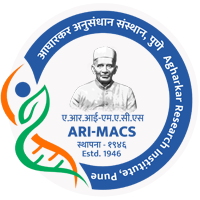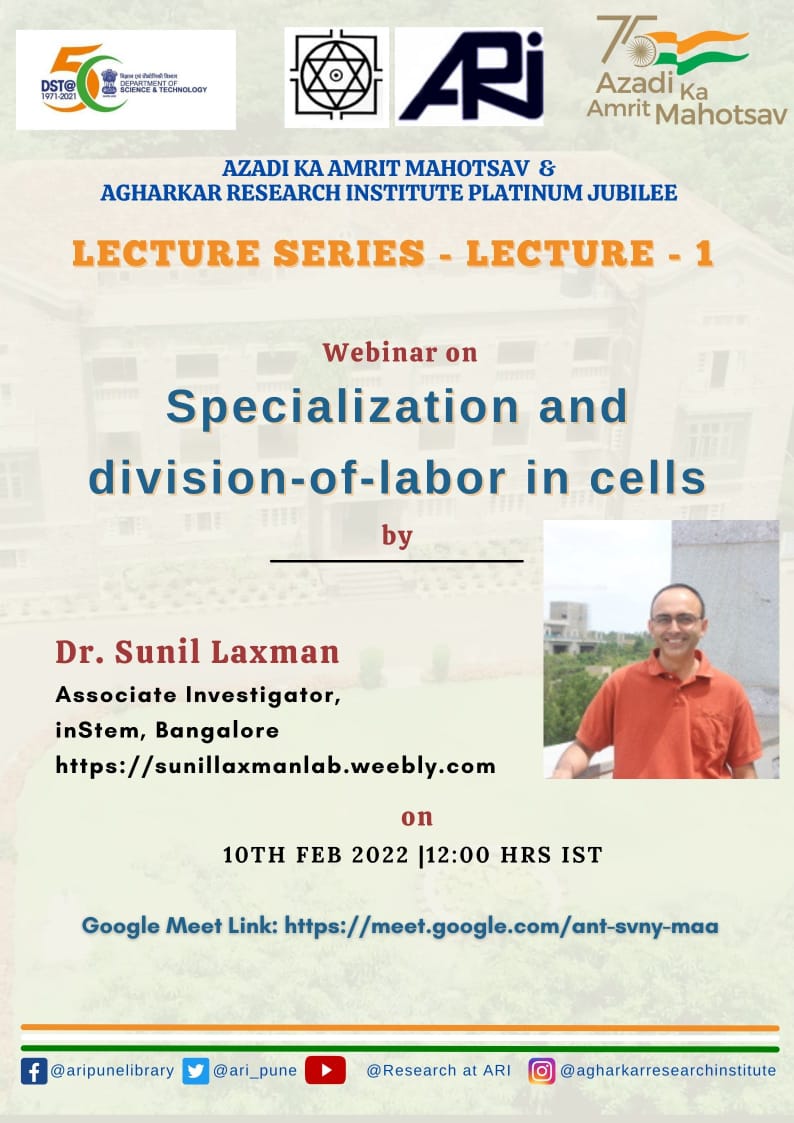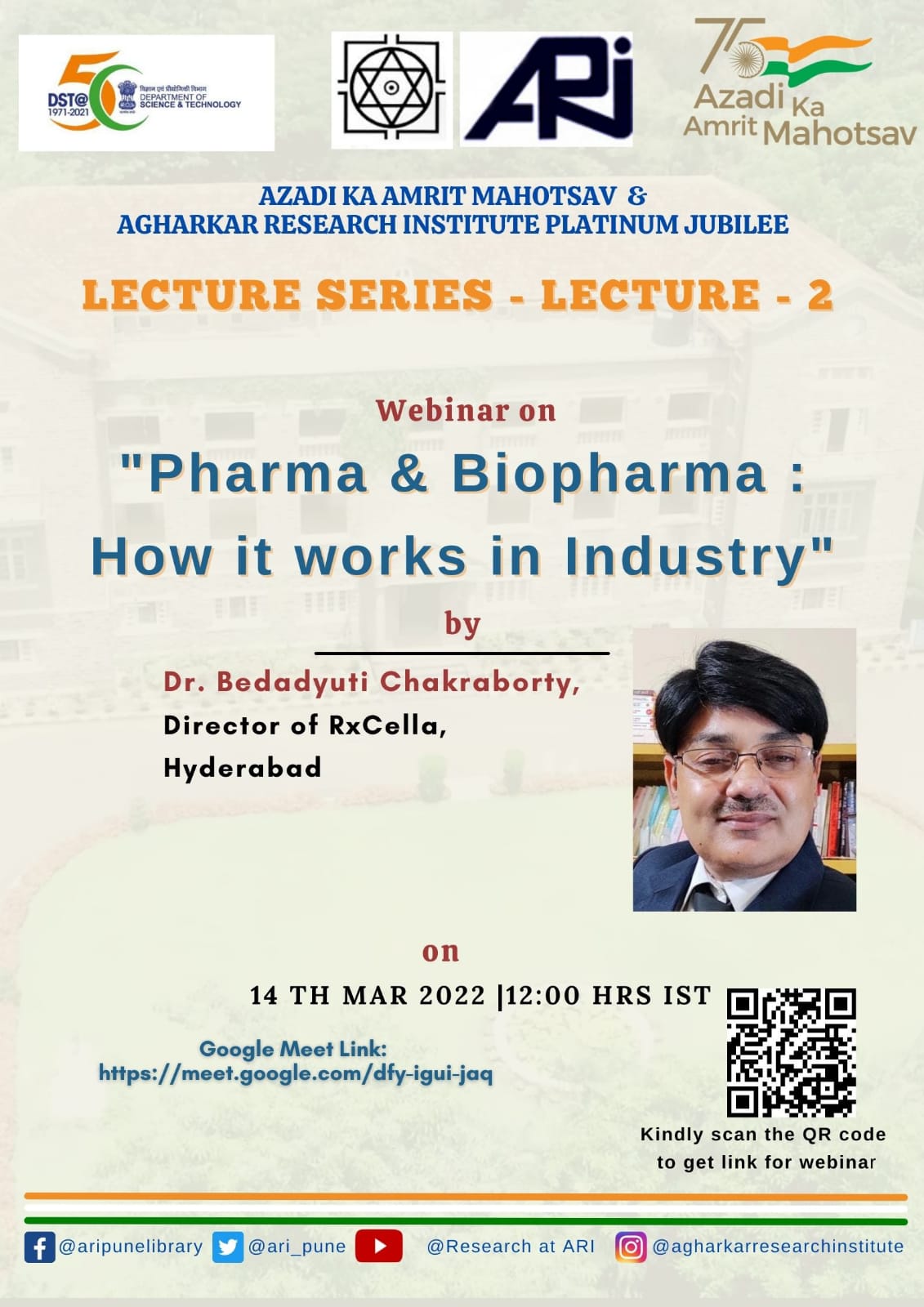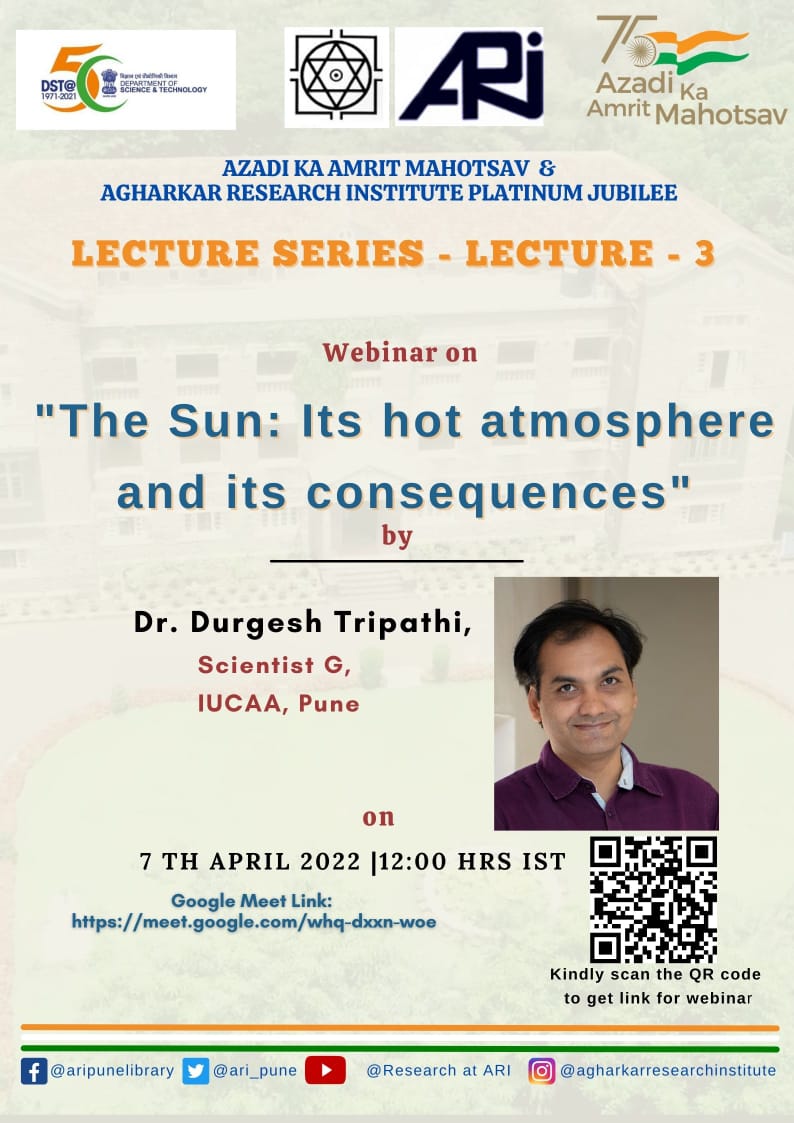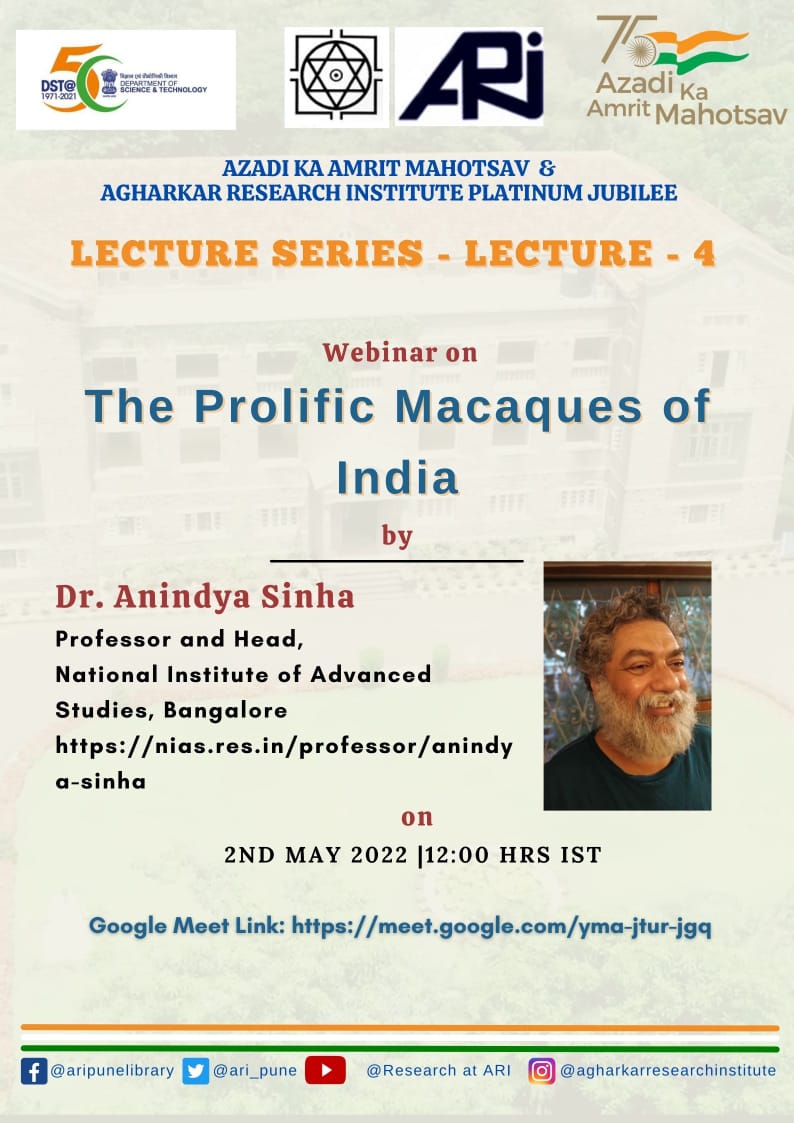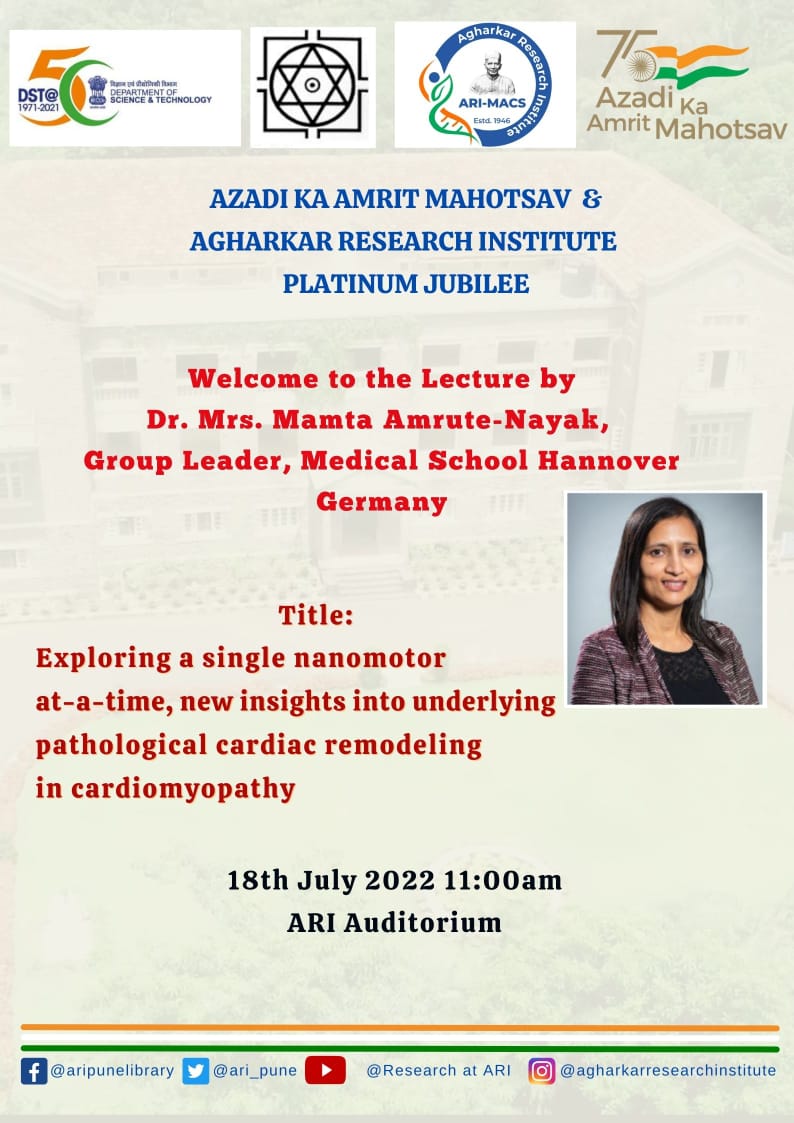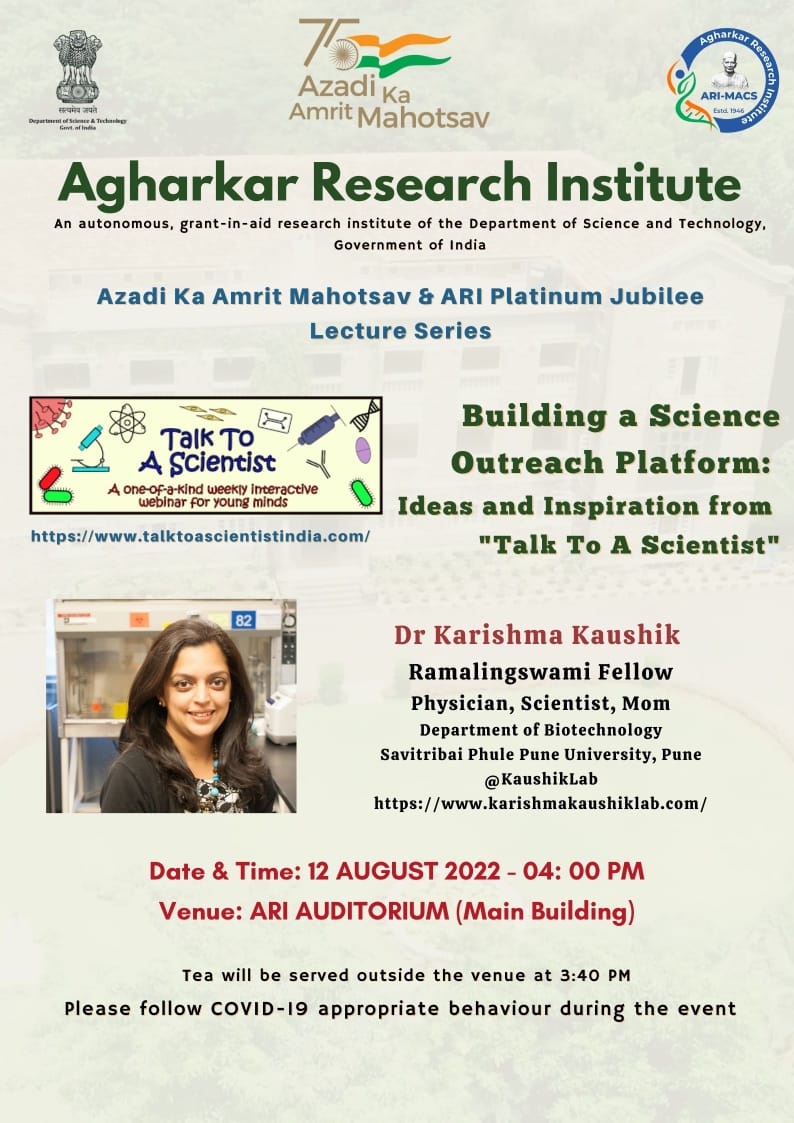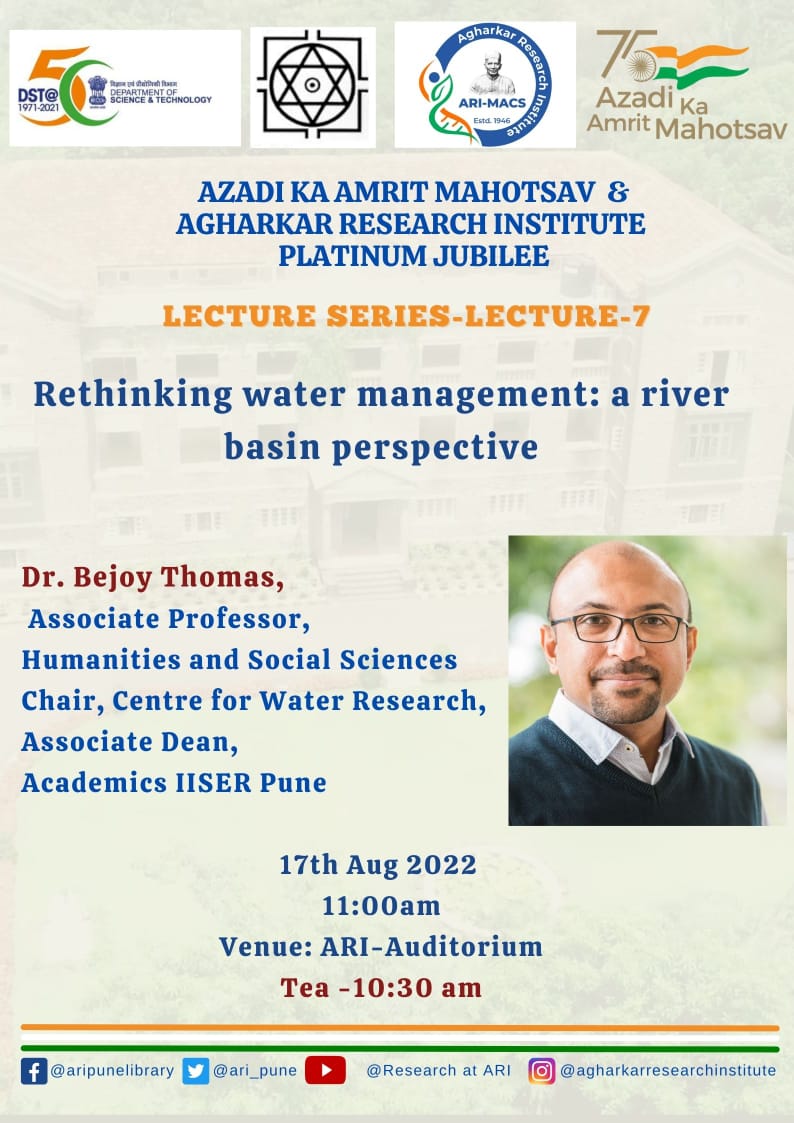President’s Desk

DR. ANIL KAKODKAR
The founders of the MACS had realized the importance of scientific research in nation building. Since then, MACS has been pursuing essential research areas such as developing high-yielding and disease-resistant crop varieties, biodiversity studies focusing on microorganisms and plants, and environment-friendly sustainable development.
MACS-Agharkar Research Institute has significantly contributed to our nation’s food security by developing high-yielding, disease-resistant wheat, soybean, and grapes varieties. This program coincides with our nation’s rise as an exporter of food grains from the earlier ship to mouth state. ARI scientists have documented the diversity of plants and microbes from the biodiversity hotspots. Documenting our nation’s rich biodiversity has enriched the repositories at the Institute. These include the collections of microorganisms, fungi, lichens, diatoms, and angiosperms. Such efforts are important to know and understand our resources, potential economic activities as well as conservation efforts and prevent biopiracy. Our fossil collections offer impressive study material to paleontologists.
ARI scientists have also made significant contributions in the area of bioprospecting. Isolation of natural bioactive compounds, synthesis of their more active but less toxic derivatives for the treatment of noncommunicable diseases such as Alzheimer’s disease, anemia, diabetes, and cancer has remained one of the major areas of research at the Institute.
The biological treatment of waste has been a hallmark of our research. ARI scientists have developed environment-friendly technologies for treating wastewater from domestic and industrial sources. The energy generation from biomass has led to the development of promising technologies. Most of the know-how has attracted commercialization.
ARI scientists have also developed multiple nanotechnology applications for (i) disease diagnostics, (ii) nanomedicine, and (iii) nanoformulations in the domain of pest control in agriculture.
The Institute has been involved in using model organisms like zebrafish, drosophila, and hydra to study cellular signaling and morphogenesis by combining genetics with molecular biology and imaging.
It is thus clear that MACS’ Agharkar Research Institute, has lived up to the scientific and patriotic zeal of the visionary founder members of the Maharashtra Association for the Cultivation of Science. There is however no room for complacency and we need to continuously scale greater heights in scientific excellence and contributions to national development.


